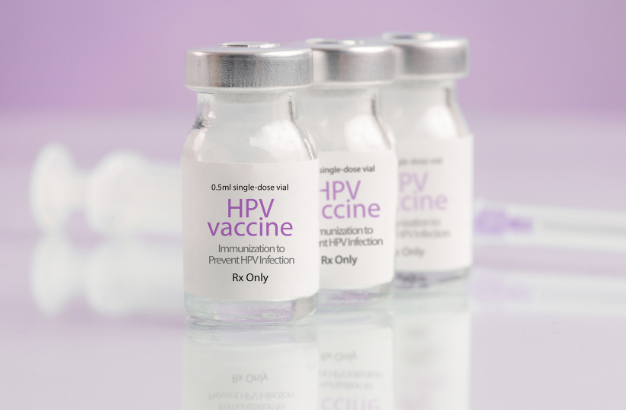Tell Me About the HPV Vaccine
Krystene Wray, WHNP-BC, IBCLC, PMH-C, MSCP
What is the HPV Vaccine?
The HPV vaccine protects against the human papillomavirus (HPV), a common sexually transmitted infection that can lead to various cancers, including cervical, vaginal, vulvar, anal, head, and neck. The vaccine we currently have is Gardasil 9, it is designed to prevent infection from nine of the most common high-risk HPV types, which includes both high risk and low risk types.
How Does the HPV Vaccine Work?
The HPV vaccine works by stimulating the immune system to recognize and fight off the virus if an individual is exposed to it. It does not contain live virus, so it does not cause HPV infection or any related diseases. The vaccine is most effective when given before a person becomes sexually active, as it provides protection before potential exposure to the virus.
Who Should Get Vaccinated?
The HPV vaccine is recommended for:
Preteens: The Centers for Disease Control and Prevention (CDC) recommends both girls and boys receive the HPV vaccine at ages 11-12. This age group is ideal because it allows the body to build a strong immune response to the virus before potential exposure to HPV. Although the vaccine can be started as early as age 9.
Teens and Young Adults: The vaccine can be given to individuals up to age 26. If you missed the vaccination as a preteen or teen, it’s not too late!
Adults Aged 27-45: The CDC now suggests adults aged 27-45 discuss the HPV vaccine with their healthcare provider. While the vaccine is less effective in this age group, it may still provide benefits based on individual risk factors.
How is the Vaccine Administered?
The HPV vaccine is given as a series of shots. Depending on what age you start the vaccine series:
Ages 9-14: Two doses are given, with the second dose administered 6-12 months after the first.
Ages 15-26: Three doses are recommended, with the second dose given 1-2 months after the first, and the third dose given 6 months after the first.
Why is the HPV Vaccine Important?
Cancer Prevention: The HPV vaccine significantly reduces the risk of developing cervical cancer and other HPV-related cancers. It is estimated the vaccine could prevent up to 90% of cervical cancer cases.
Reduction in Genital Warts: The vaccine also protects against types of HPV that cause genital warts.
Safe and Effective: Extensive research has shown the HPV vaccine is safe and effective. Common side effects are typically mild and can include soreness at the injection site, mild fever, or fatigue. More serious side effects include allergic reaction and fainting. Typically, after your injection, your healthcare team will have you wait 15 minutes before leaving to ensure you do not experience an adverse reaction.
Community Health: By getting vaccinated, you are contributing to herd immunity, which helps protect those who cannot be vaccinated due to medical reasons.
Addressing Myths and Misconceptions
Many myths surround the HPV vaccine, including concerns about safety and its impact on sexual behavior. It’s essential to clarify that:
The HPV vaccine is safe: Extensive studies and ongoing monitoring continue to show that it is safe for both males and females.
The vaccine does not encourage risky sexual behavior: Research has indicated vaccination does not lead to an increase in sexual activity among teenagers.
Conclusion
The HPV vaccine is a powerful tool available to protect you or loved ones from certain cancers. If you or your child fall within the recommended age groups, I encourage you to discuss the HPV vaccine with your healthcare provider!
If you have any questions about the HPV vaccine or your health, please don’t hesitate to reach out to your healthcare provider.
Need more info?
Check out these reputable sources discussing the HPV vaccine.

